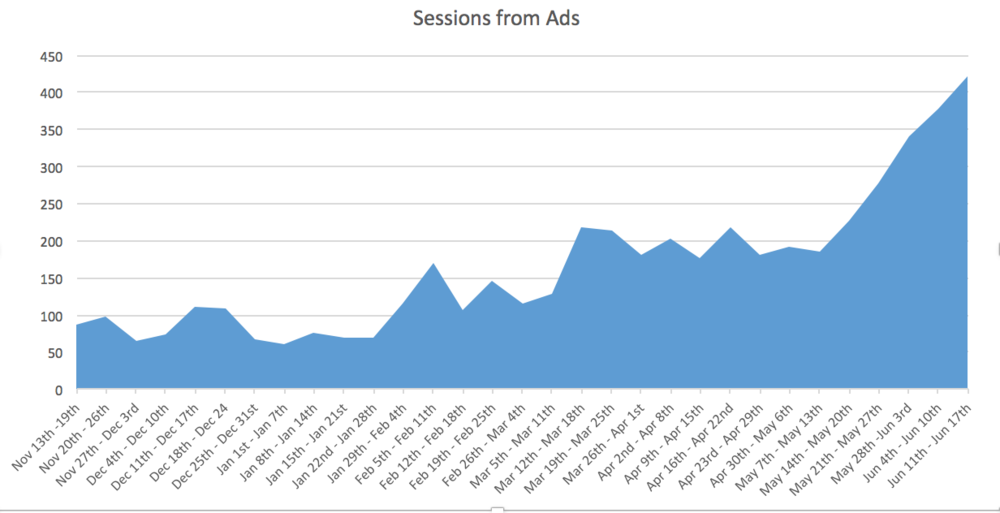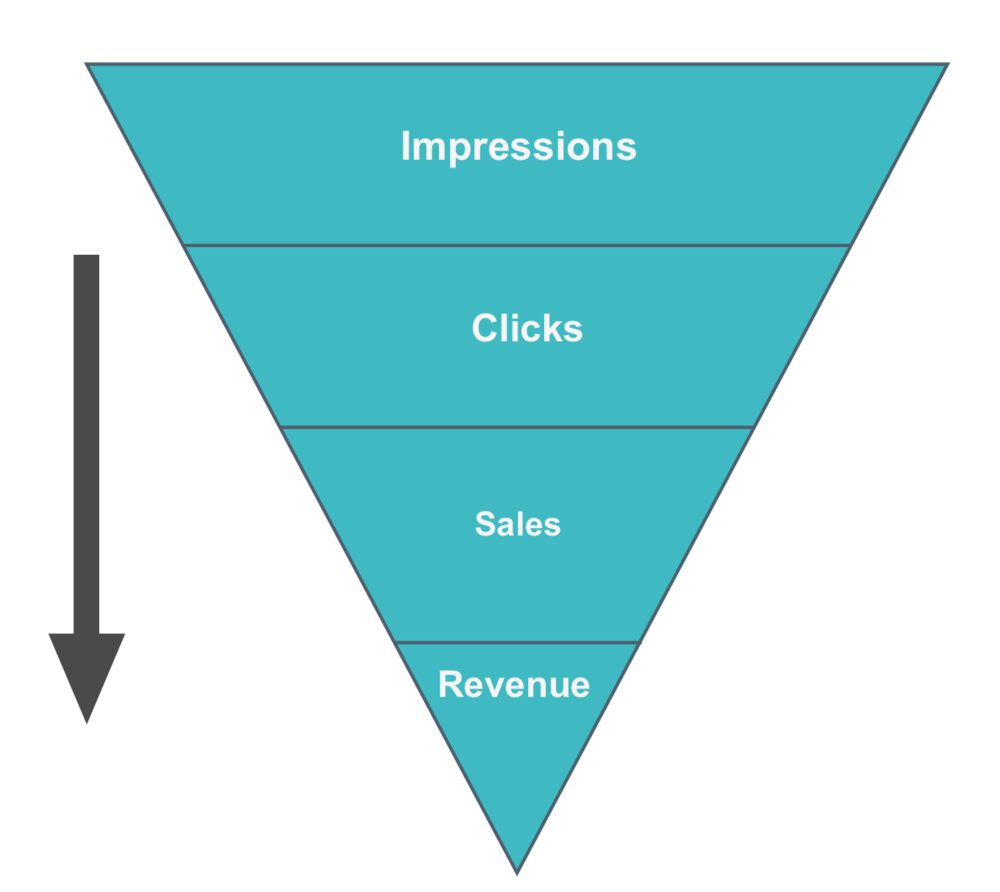Have you ever noticed a seasonal element to your sales on Amazon? Maybe you’ve seen significant growth in your sales during the final quarter of the year or a really dramatic drop in certain months. Actually, seasonality has an effect in most product categories, which means we can study its rhythms and figure out how to take advantage of it.
For example, if you were to sell T-shirts on Amazon, you’d be correct in anticipating higher sales during the summer months than during the colder days of winter. However, you shouldn’t make the mistake many sellers do of correctly anticipating higher volumes of sales during part of the year only to make the mistake of ignoring advertising during the slow season.
This is most common in the holiday season: Sellers know to expect higher sales during Q4 and carefully prepare for it, yet they often don’t devote the same level of attention to the other three quarters of the year.
Here’s a visual of T-shirt sales for one seller on Amazon. As you can see, there are far more sessions during the warmer months, meaning that’s when more people are looking to buy.

You might have seen the impact of seasonality yourself if you advertise your products with PPC. Not only will you find that the actual volume of sales is different, but you’ll also see that numerous other parameters fluctuate.
Details will differ in each case, so it’s hard to generalize. Many sellers don’t invest in PPC throughout the year, instead choosing only to advertise their product during the busy season or only to increase their budget during this season. Ultimately, as Bobsled has seen with its clients, this makes cost-per-click expenses higher and increases advertising competition. The end result here is less success for your brand and fewer sales made. With this in mind, we strongly suggest you keep up your advertising during the off-season months.
NEED EXPERT HELP WITH PPC CAMPAIGNS? LEARN ABOUT OUR SPONSORED PRODUCTS AND AMS ADVERTISING MANAGEMENT SERVICE.
Yearlong Advertising
Why exactly do we recommend advertising throughout the year? Simply put, campaigns need traction to start performing well. It often takes at least a few weeks for each campaign to start delivering the results you’d like. If you start and stop repeatedly over the course of the year, your campaign won’t ever have time to blossom into its full potential.
Think of it this way: You expand the seasonal reach of your products by advertising all year long. You get some extra staying power in your campaign results, both before and after the busy season. Overall, you get more bang for your buck.
Your ongoing PPC efforts will carry over to organic sales as well, giving you even more momentum. To explore this a little more, let’s discuss an often-neglected feature on Amazon: attributed conversion. This is when the sale is attributed to something other than the last click.
Each of your customers goes through a buying journey as they explore the options available and finally decide to purchase. Your customers probably click on a number of different products. They might click an ad, then search for something else, then something else, and finally they land on your product page. All of these clicks are considered attributed conversion. Something made the customer believe yours was the best choice, and a sale was made.
Here are the most important things to track in your account for PPC purposes:

They’re in this order for a reason: Impressions come first, and so on through the rest. These factors are really important in getting potential customers to take an interest in your product. If you aren’t getting impressions for ads, there could be a few different reasons, some of which have to do with seasonality. The likeliest reason, though, is that the keywords you’re targeting are ineffective, and you need to find better ones.
It’s important you keep track of your performance, both organic and paid. That way you can compare organic impressions and PPC impressions over time. If your niche is small and you’re not getting increasingly higher sales, remember you may already be reaching every potential customer for your product.
Does this mean you’re spending as much on campaigns during your typical off-season months as during your peak months? Not necessarily. But maintaining some level of spend throughout each month of the year will help to maintain and grow the effectiveness and efficiency of your PPC campaigns.
Other time-sensitive factors
Apart from natural seasonality, what other time-sensitive sales issues should you consider? Two words: Prime Day. This is the biggest day of the year for e-commerce and could be for your brand as well. You need to prepare for it ahead of time since it will require a lot of thought about issues like discounted deals and inventory management. The same is true of Black Friday and Cyber Monday during the fall season.
For both special sales and seasonality in general, you will have to prepare. Be sure to target your customers for the right search terms and have bids set to prevent competitors from showing up ahead of you for the keywords you’ve targeted. It’s important to budget for this: Provide ample funding so your campaign doesn’t stop suddenly and unexpectedly.
During your product’s busiest time of year, revenue and advertising costs often come close to each other, but high-quality optimization and good planning can prevent this.
Bottom line
During the busy season for your particular products, you will want to spend more money on advertising to make every sale you can. Just remember that you’ll deal with a higher cost-per-click amount and will want to optimize your bids because other brands are competing for those very sales.
You may think it’s better to cut back on PPC spending during the slow season for your products so you can trim your costs, but our work with numerous clients selling in various Amazon categories says the opposite. If you decide to pause your PPC campaigns, you’ll lose the traction you’ve built and you’ll need at least 2-3 weeks to regain it. Your brand’s products will do better overall if you advertise all year long and keep up your momentum.
If PPC is not your strong suit, our team of Amazon experts can certainly help. Learn more about our services and request a consultation.
{{cta(‘91362601-86ca-464d-9f56-2513a8d9519e’)}}
